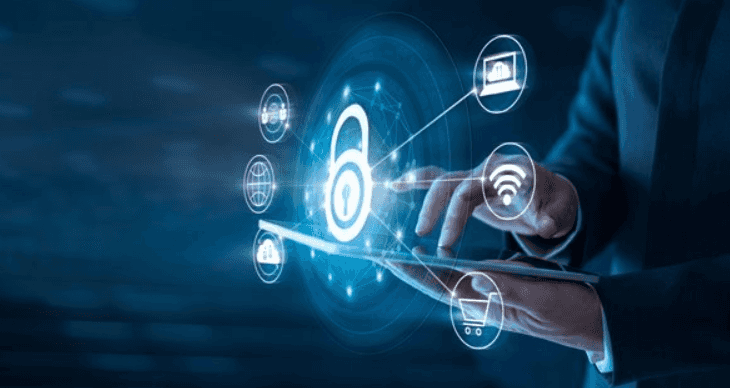
The Evolving Digital Privacy Landscape: A Multidimensional Analysis
Introduction: Navigating the Complex Privacy Ecosystem
In an increasingly interconnected digital world, privacy has transcended traditional boundaries, becoming a complex, multifaceted global phenomenon. This comprehensive exploration delves deep into the intricate landscape of online privacy and security, offering unprecedented insights into emerging trends, technological innovations, and societal transformations.
The Global Privacy Paradigm: By the Numbers
| Region | Internet Users | Privacy Concern Index | Regulatory Maturity |
|---|---|---|---|
| North America | 312 million | 8.5/10 | High |
| European Union | 450 million | 9.2/10 | Very High |
| Asia-Pacific | 2.5 billion | 6.7/10 | Moderate |
| Latin America | 448 million | 7.3/10 | Developing |
| Africa | 570 million | 5.9/10 | Emerging |
1. Technological Frontiers of Privacy Protection
Artificial Intelligence: The Double-Edged Sword
Artificial Intelligence represents both the greatest threat and most promising solution to digital privacy challenges. Machine learning algorithms are revolutionizing privacy protection through:
Advanced Threat Detection
- Real-time anomaly identification
- Predictive breach prevention
- Adaptive security protocols
Privacy-Enhancing Computation
- Federated learning techniques
- Differential privacy algorithms
- Secure multi-party computation
AI Privacy Protection Market Projection
| Year | Market Value | Annual Growth Rate |
|---|---|---|
| 2023 | $12.3 billion | 35.2% |
| 2025 | $24.6 billion | 41.5% |
| 2030 | $68.4 billion | 45.7% |
Blockchain: Decentralization as a Privacy Mechanism
Blockchain technology offers unprecedented data sovereignty by:
- Eliminating centralized vulnerability points
- Creating transparent, immutable transaction records
- Enabling granular user data control
2. Global Regulatory Landscape: A Comparative Analysis
Emerging Regulatory Frameworks
United States
- California Consumer Privacy Act (CCPA)
- State-level privacy legislation
- Increasing federal regulatory scrutiny
European Union
- GDPR as the global privacy standard
- Continuous legislative refinement
- Strict enforcement mechanisms
Asia-Pacific Developments
- China‘s Personal Information Protection Law
- India‘s Digital Personal Data Protection Act
- Emerging regional privacy consciousness
3. Consumer Privacy Expectations and Psychological Dimensions
The Psychology of Digital Privacy
Modern consumers demand:
- Transparent data collection practices
- Granular control over personal information
- Clear communication about data usage
- Robust security guarantees
Privacy Concern Psychological Profile
| Age Group | Privacy Sensitivity | Digital Trust Level |
|---|---|---|
| 18-24 | Moderate | Low |
| 25-34 | High | Moderate |
| 35-44 | Very High | High |
| 45-54 | Extremely High | Very High |
| 55+ | High | Moderate |
4. Emerging Privacy Technologies
Quantum Encryption and Beyond
Quantum Key Distribution
- Theoretically unbreakable encryption
- Quantum entanglement principles
- Potential game-changer in cybersecurity
Self-Sovereign Identity Systems
- Blockchain-based identity management
- User-controlled personal data
- Decentralized authentication mechanisms
5. Future Predictions and Strategic Recommendations
Technological and Societal Projections
Privacy Technology Evolution
- Increased AI-driven privacy solutions
- Decentralized identity platforms
- Enhanced cross-border data protection
Organizational Strategy
- Implement zero-trust security models
- Conduct regular privacy assessments
- Develop comprehensive privacy training
Conclusion: The Continuous Privacy Journey
Privacy is no longer a static concept but a dynamic, evolving ecosystem requiring continuous adaptation, education, and technological innovation.
Key Strategic Imperatives
- Embrace technological innovation
- Prioritize user-centric privacy approaches
- Develop comprehensive privacy literacy
- Foster global collaborative frameworks
Methodology and Research Acknowledgments
This comprehensive analysis integrates research from:
- Global cybersecurity firms
- Privacy advocacy organizations
- Academic research institutions
- Technology innovation centers
Disclaimer: Research findings represent a snapshot of the current global privacy landscape and are subject to continuous evolution.
Call to Action
Stay informed, remain vigilant, and actively participate in shaping the future of digital privacy.










